
views
- A waifu is a fictional female character, usually in anime, that a fan considers their ideal life partner or "wife."
- The typical waifu is beautiful, smart, and funny, with a well-written character arc. Her other personality traits depend on what the individual fan likes.
- Anime fans know their waifus are fictional characters but still tend to consider the relationship as a very serious and real thing.
What is a waifu?

A waifu is a fictional character a fan considers their ideal life partner. The term itself is a Japanization of the English word "wife," and was first used in an anime. "Waifu" is typically used to refer to anime characters, but can be used for other fictional characters as well, such as those in movies, TV shows, or books. The important distinction here is that the fan has a romantic attraction to the character and feels that character embodies all the traits the fan would want in a life partner. The male counterpart of a waifu is a "husbando," although female fans use "waifu" to refer to their favorite male anime characters as well. The relationship between an anime fan and their waifu exists on a spectrum. For some, it's merely a casual, fun thing. Those who take it most seriously view their waifu as a real person who can get hurt or upset. Even though "waifu" is most commonly used to refer to a fictional character, some anime fans use it to refer to real people as well. It has generally the same meaning, though! If your significant other refers to you as their "waifu," it means they believe you would be an ideal life partner.
Waifu Characteristics

Beauty It might seem to go without saying that any waifu is beautiful, but a waifu's attraction goes beyond her superficial beauty. A character with strong waifu potential is beautiful inside and out. The phrase "beauty is only skin deep" applies here as well. It's not enough for a waifu to be pretty—the fan has to connect to her on a personal level as well.

Character quality You could more generally refer to this as a character's design. Fans understand that their waifus are fictional creations and the better the character design, the more interesting the character is going to be—and thus, more likely to be someone's waifu. Fans typically look for a character with a compelling backstory that has shaped her into an interesting and complex person. A good waifu isn't usually a simple or basic character. Anime characters are often characterized as being a different archetype, or "dere" type. While a waifu can be virtually any dere type, a few are more popular than others.

Skills and talents A strong waifu character usually has unique skills and talents that set her apart from the other characters in the series. What those skills are depends on what each anime fan is subjectively attracted to. For example, some fans prefer waifu who are shy and soft-spoken and will be attracted to characters who share those traits. Other fans prefer a waifu who is strong and skilled as a warrior. They want a waifu who is capable of protecting them, rather than one they would be called on to protect themselves.

Sense of humor Most anime fans want a waifu who has a good sense of humor and can make them laugh from time to time. Although it's subjective, fans tend to pick a waifu whose sense of humor mirrors their own. For example, if an anime fan has a relatively dark or sarcastic sense of humor, they wouldn't choose a waifu who has a silly and goofy sense of humor.

Personality traits The type of personality traits an anime fan wants in a waifu might change over time. For some, the act of choosing a waifu can be a way for an anime fan to figure out the traits they want in a real-life partner. For others, it's simply a matter of who they'd rather spend a lot of time with. A fan might look for a waifu whose weaknesses balance their own perceived strengths. For example, an outgoing anime fan might prefer a shy waifu they can help socially.

Intelligence Intelligence is considered a desirable trait among anime fans, so it stands to reason that most waifus will be fairly smart (although some are smarter than others). If a fan values intelligence highly, their waifu will be incredibly smart, maybe even a genius.
The Waifu Relationship
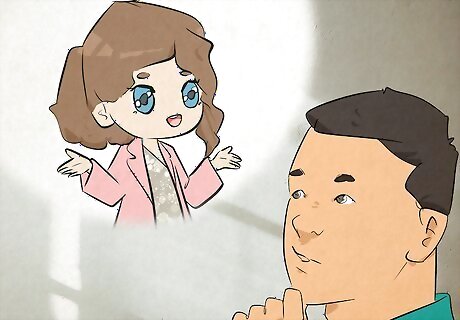
The fan knows their waifu is a fictional character. It might seem odd, but in a lot of ways a waifu is like an imaginary friend. The fan knows that their waifu was ultimately the creation of whoever wrote or produced the anime. At the same time, though, many fans treat their waifus as though they are, at least to some extent, real. For example, a fan might have dinner with his waifu in which he prepares her favorite meal and eats with some representation of her, such as a body pillow or a cardboard cut-out.

The waifu relationship involves some level of commitment. For the most dedicated anime fan, the waifu is the #1 female character. The fan will put his waifu above any other character. They might also establish rituals in their life, such as watching their waifu's series before they go to bed at night. The level of commitment depends on how seriously each individual fan takes their waifu relationship, but for some, it means not watching any other female anime characters as much as they watch their waifu.
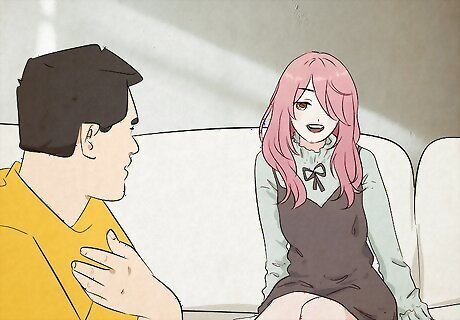
The fan might consider their waifu's opinion when making decisions. Fans already know the basic personality profile and preferences of their waifus. When they're making decisions, they'll try to figure out what their waifu would want in that situation and they won't make a decision that they think would anger or upset their waifu. For example, if the fan was thinking about moving to a new city, they might consider what their waifu likes and whether she would enjoy the new city. While it's not necessarily true that they wouldn't move if they thought their waifu would be against it, they would at least take her feelings into account.

A fan with a waifu can still have a "real" relationship. The waifu relationship represents an entirely different part of the fan's life. There's nothing about this relationship that would keep them from having a romantic or sexual relationship in real life with a real person. At the same time, a fan's real-life significant other might become frustrated by the amount of time and attention they give to their waifu.

The fan sees their relationship with their waifu as real. This is perhaps the hardest part of a waifu relationship for people on the outside to grasp. Even though fans know that their waifus are fictional characters, they still typically believe that the bond they share with their waifu is real. This relationship is often also very important. Fans can become agitated or angry if someone insults or makes fun of their waifus. On the extreme end, they might end a real-life friendship or romantic relationship if the other person is unwilling to accept their waifu.

The waifu relationship might involve sexual activity. The waifu and anime communities are somewhat split on the idea of sexual activity with waifus, but some are all for it. There are sex toys and body pillows fans can buy for this purpose. While fans generally see nothing wrong with having a waifu who's underage, having sex with an underage waifu is generally frowned upon.
Popular Waifu Characters
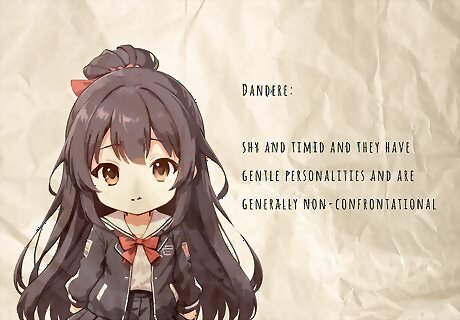
Dandere This anime archetype refers to characters who are shy and timid. These female characters have gentle personalities and are generally non-confrontational. Examples of dandere characters who are popular waifus include: Shoko Komi (Komi Can't Communicate) Miku Nakano (The Quintessential Quintuplets) Rem (Re:Zero)
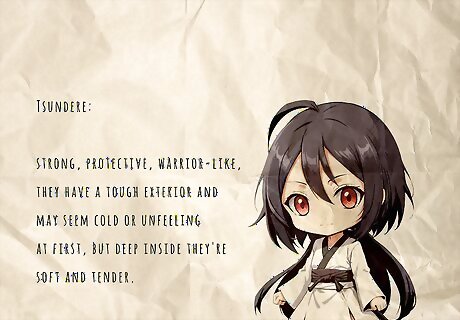
Tsundere These are the strong, protective, warrior-like waifu characters. They typically have a tough exterior and may seem cold or unfeeling at first, but deep inside they're soft and tender. These waifus would fight to protect those they love. Erza Scarlet (Fairy Tail) Rukia Kuchiki (Bleach) Asuna Yuuki (Sword Art Online)
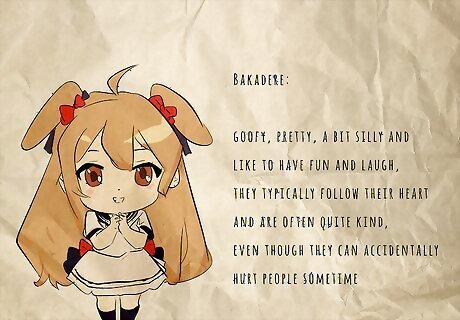
Bakadere These waifus are the goofy characters. They're pretty, of course, but they're also a bit silly and like to have fun and laugh. They typically follow their heart and are often quite kind, even though they can accidentally hurt people sometimes. Their sense of humor and playfulness make them lovable. Tohru Honda (Fruits Basket) Darkness (Konosuba) Katarina Claes (My Next Life as a Villainess)











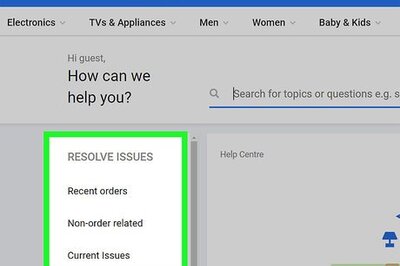



Comments
0 comment